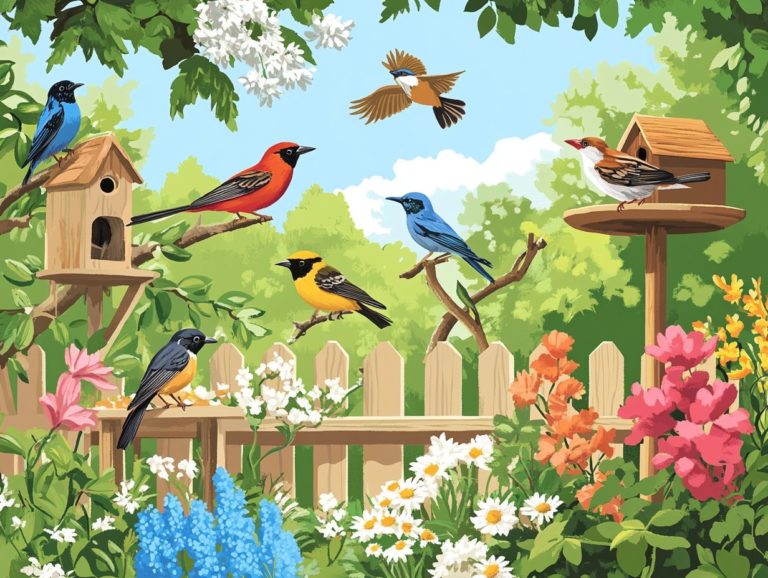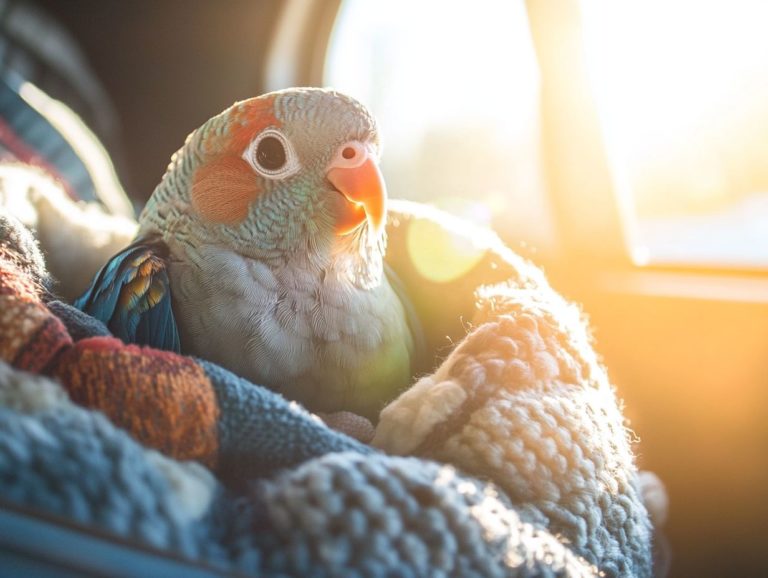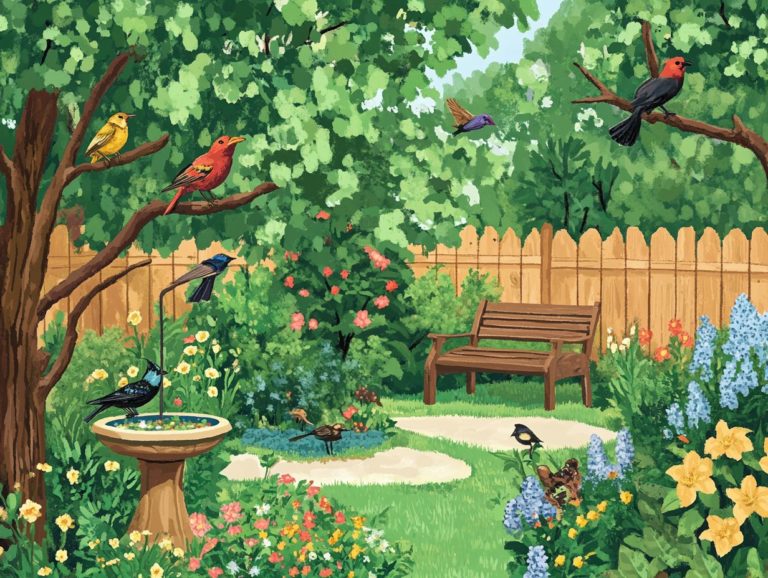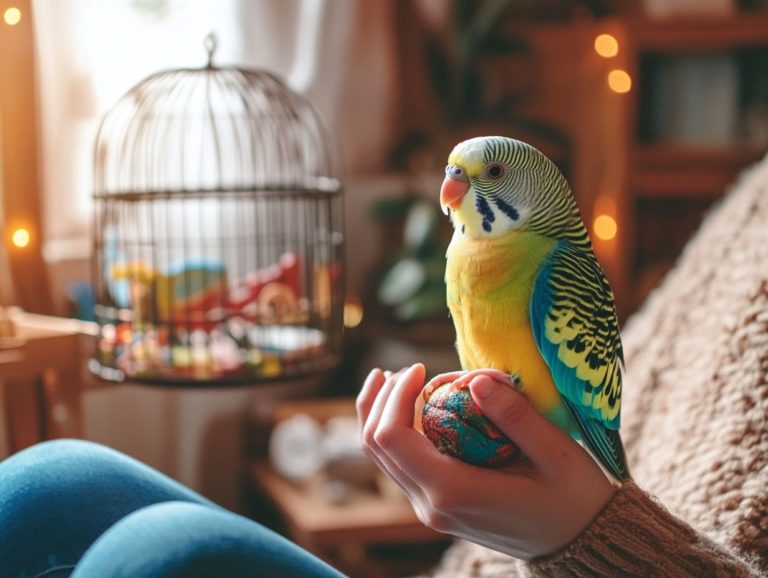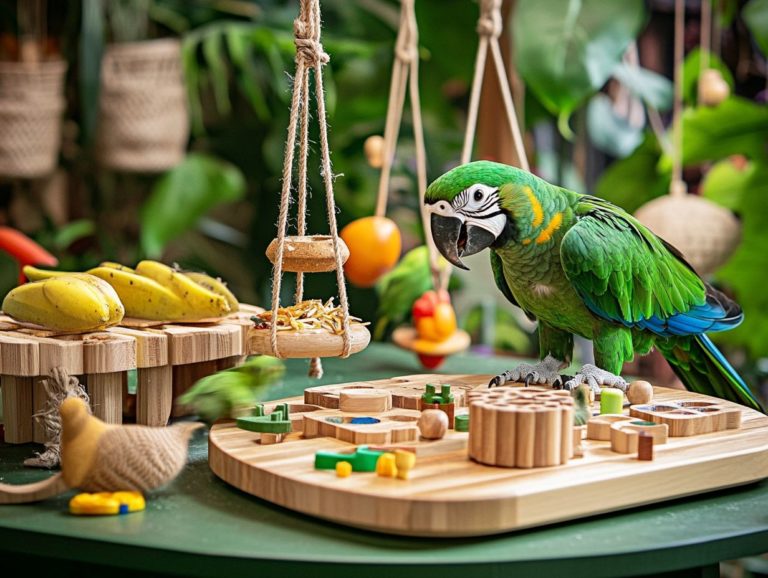What Are the Signs of Stress in Birds?
Birds, much like all living creatures, experience stress. Recognizing its signs can be vital for their well-being.
In this article, you ll delve into the definition and causes of stress in your feathered companions. You will uncover everything from behavioral changes to physical symptoms.
Common stressors include environmental factors and human interactions. You will also find effective strategies to manage and reduce their stress levels.
Understanding when to seek veterinary care for your bird is essential to ensure they remain happy and healthy.
Contents
Key Takeaways:
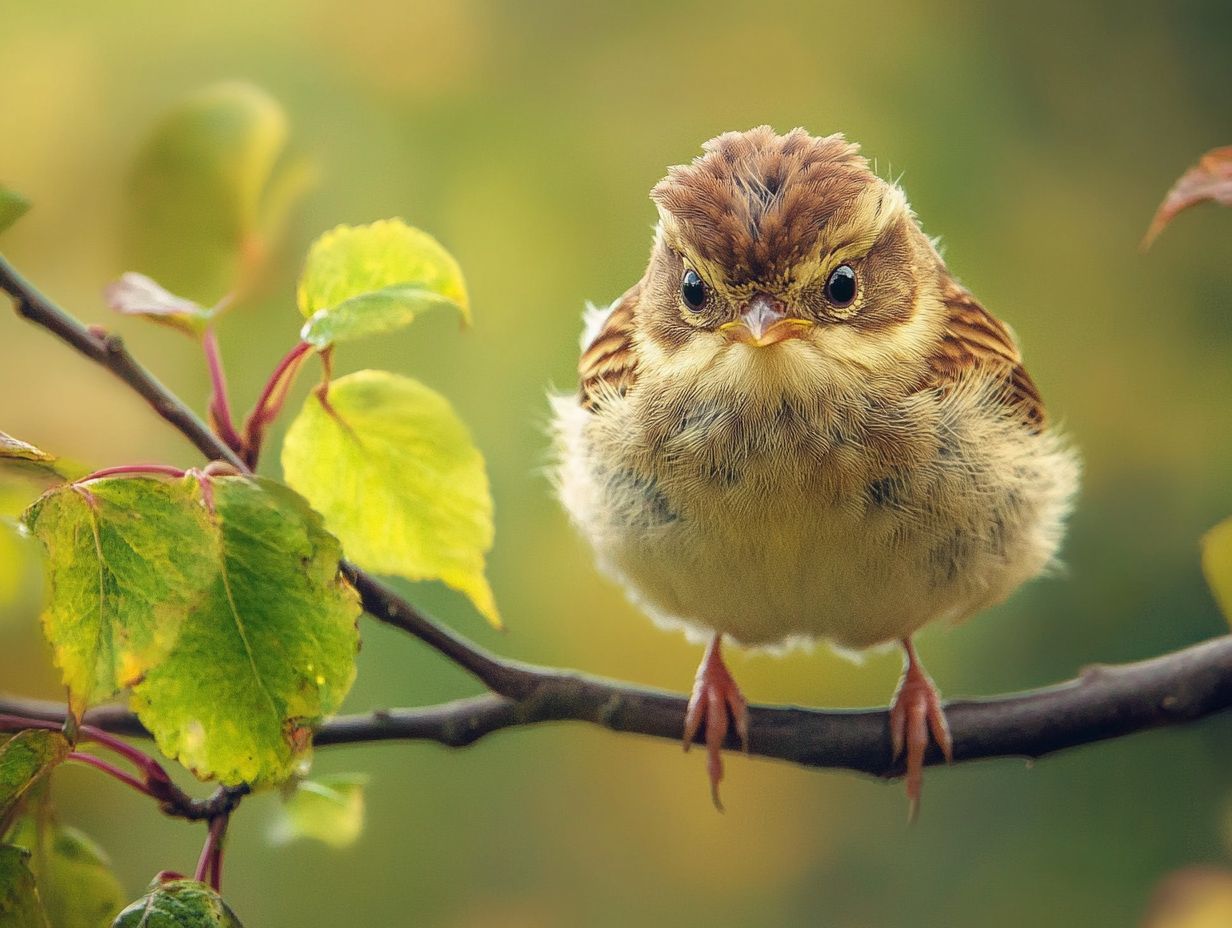
- Birds can become stressed due to various factors, such as changes in their environment or negative interactions with humans.
- Signs of stress in birds include behavioral changes, such as feather plucking, and physical symptoms like loss of appetite.
- To help manage and reduce stress in birds, it’s important to provide a comfortable and safe environment and use positive reinforcement techniques during interactions.
Understanding Stress in Birds
Understanding stress in birds is vital for you as a bird owner because it profoundly affects their mental health and overall health. Stress can emerge from various sources, including environmental changes, insufficient mental stimulation, or interactions with humans and other animals.
By recognizing and addressing these stressors, you can ensure the happiness and health of your beloved pets, whether they are cockatoos, African gray parrots, or lovebirds.
Definition and Causes
Stress in birds refers to the physical and emotional strain that can lead to various behavioral changes and health issues. You might see stress in your bird through changes in behavior, like increased aggression or feather plucking.
A variety of factors can trigger stress in these delicate creatures. Common triggers include loud noises, sudden changes in their environment, inadequate socialization, and poor diet. Environmental stresses, such as temperature fluctuations and lack of stimulation, can significantly impact their overall well-being.
Understanding these causes is vital for you as a pet owner. Recognizing signs of distress gives you the power to implement effective management strategies, fostering a healthier and more tranquil environment for your avian companions.
Signs of Stress in Birds
Spotting signs of stress in your birds is crucial for their happiness, allowing for timely intervention and support for your beloved pets.
Look out for common indicators such as:
- feather picking
- self-mutilation
- a noticeable loss of appetite
- any shifts in vocalization or aggression
Being aware of these signs can significantly enhance your ability to manage stress and improve the overall health of your pet birds, including Eclectus parrots, Quakers, and others.
Behavioral Changes and Physical Symptoms
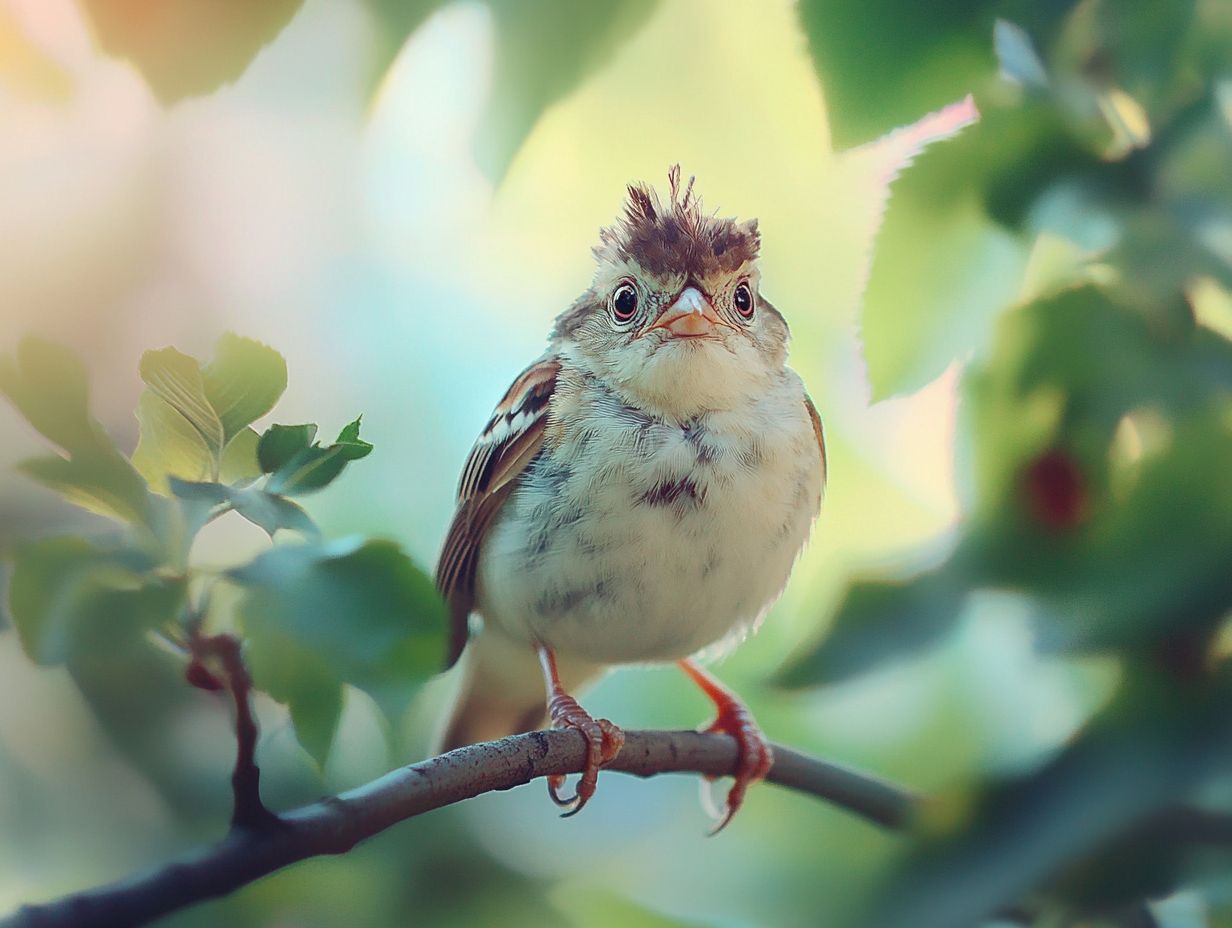
Behavioral changes and physical symptoms are essential indicators of stress in birds. These manifestations can vary widely among different species.
For example, if you have parrots, you might notice increased aggression perhaps they start biting or become particularly irritable when they feel threatened. On the other hand, canaries may respond to stress by cutting back on their vocalizations, creating a quieter atmosphere that can be distressing for both them and you.
Stress bars visible lines on feather shafts are often a telltale sign in many species, including finches, indicating chronic stress and poor feather condition. These symptoms can have serious implications for their health; prolonged stress can weaken their immune systems, decrease their appetite, and lead to an overall decline in well-being.
It’s crucial for you as a bird owner to recognize these signs early so you can make the necessary adjustments to create a calmer, more secure habitat for your feathered friends.
Stay tuned for more tips on keeping your feathered friends happy and healthy!
Common Stressors for Birds
Understanding the common stressors that affect birds is crucial for you as a bird owner. By recognizing these challenges, you can create a nurturing environment that helps mitigate stress-related issues.
Your pet birds might encounter stress from various factors, such as disruptive construction noise, feelings of boredom due to insufficient interaction, or health problems that disrupt their daily routines.
Identifying these stressors is the essential first step in fostering a healthy living space for your beloved companions, whether they be finches, parrots, or any other feathered friends.
Environmental Factors and Human Interactions
Environmental factors and human interactions significantly contribute to stress in birds, often resulting in fear and repetitive behaviors.
Various stimuli like the clamor of construction or the presence of unfamiliar animals and people can disrupt their natural habitats and daily routines. Picture a flock of sparrows; they may become more skittish and alter their feeding habits when subjected to the relentless hum of traffic or the thunderous noises of nearby construction sites.
Frequent human interactions, whether it’s feeding them or being misidentified as predators, can heighten their anxiety. This can lead to maladaptive behaviors such as feather-plucking or aggression. Recognizing these dynamics is essential for promoting the well-being of avian species in urban settings.
Managing and Reducing Stress in Birds
Managing and reducing stress in birds is crucial for keeping them happy and healthy. As a bird owner, you can implement effective strategies that prioritize stress treatment and enhance mental stimulation.
By adding fun toys and activities, establishing consistent routines, and consulting with a behavioral specialist, you can significantly elevate the quality of life for your pet birds, whether they are lovebirds or eclectus parrots.
Understanding the nuances of stress management is pivotal in creating a positive living environment for your feathered companions.
Effective Strategies and Tips
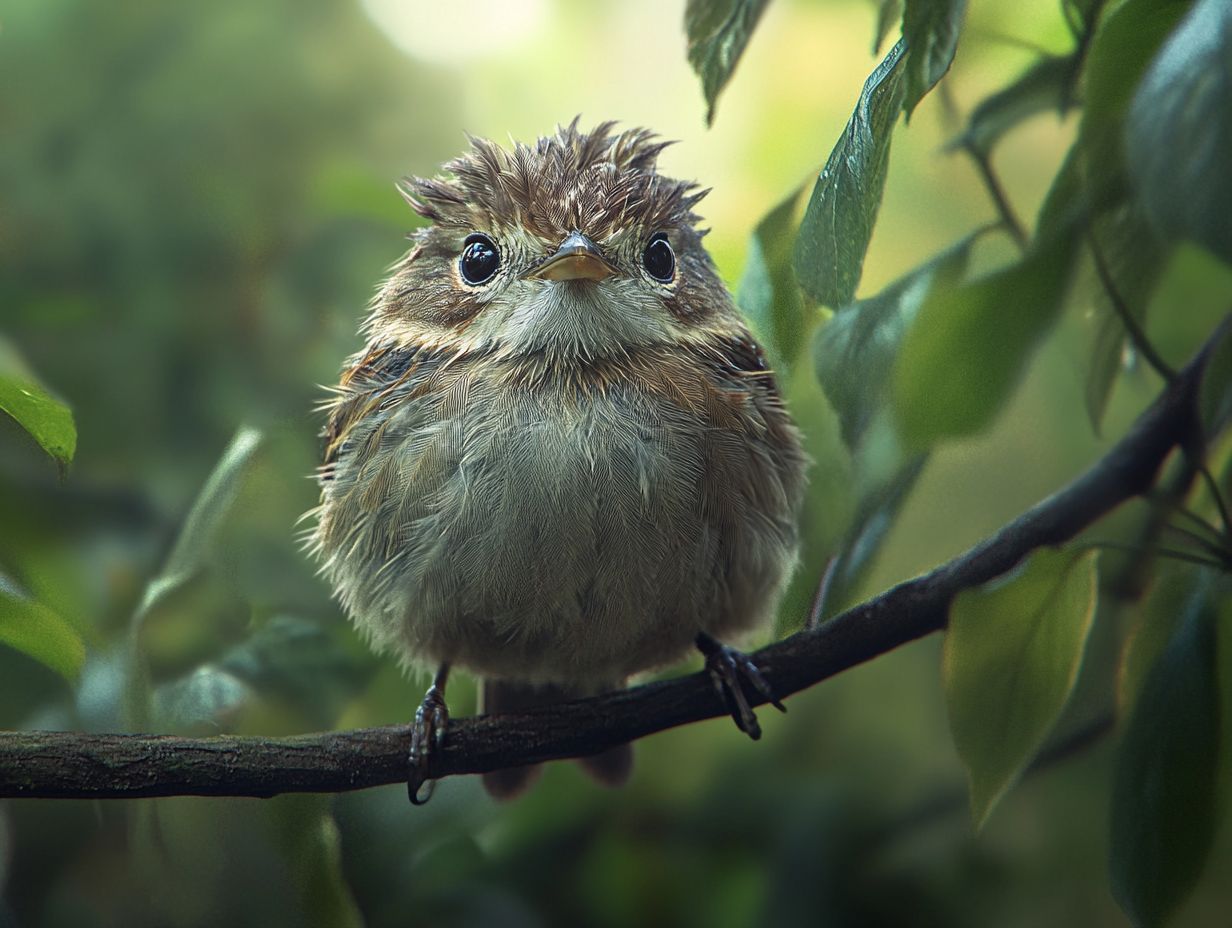
Implementing effective strategies and tips for stress management can transform the well-being of your feathered friends, significantly enhancing their quality of life.
Create a stimulating environment filled with toys, perches, and safe interactive activities to greatly reduce their anxiety levels. Establishing a consistent routine is equally essential; it provides a sense of security that helps your birds anticipate feeding, playtime, and rest, making them feel more at ease.
Pay attention to any behavioral changes, such as if your bird stops eating or seems overly quiet, as these could be signs of stress. Consulting with an avian veterinarian can provide you with personalized strategies tailored to meet the specific needs of each bird, ensuring they thrive both physically and mentally in their home environment.
When to Seek Veterinary Care
Understanding when to seek veterinary care is vital for bird owners like you, especially if you observe signs of severe stress that could lead to health complications.
If your pet bird displays ongoing behavioral changes or physical symptoms such as weight loss, lethargy, or unusual aggression it’s imperative to consult an avian vet for a comprehensive examination. Your bird s well-being depends on it.
Take a moment today to observe your bird and see how you can make their life even better!
Signs of Severe Stress and Potential Health Complications
Signs of severe stress in birds can manifest through big changes in behavior, often indicating hidden health issues that demand your immediate attention.
For example, if your bird is excessively picking at its feathers, it s likely a sign that something is off, possibly linked to anxiety or boredom. If you notice your feathered friend withdrawing hiding or interacting less with you it could mean that it doesn’t feel secure in its environment. These behaviors are not only emotionally distressing but can also lead to physical health issues, like skin infections or feather loss.
As a responsible bird owner, it s critical to notice these signs and seek a veterinary examination. Seeing a vet can spot health issues early, ensuring your bird remains happy and healthy, including bacterial infections or hormonal imbalances (when the body’s hormone levels are off).
Watch this video to learn more about bird stress and how to manage it.
Frequently Asked Questions
What Are the Signs of Stress in Birds?
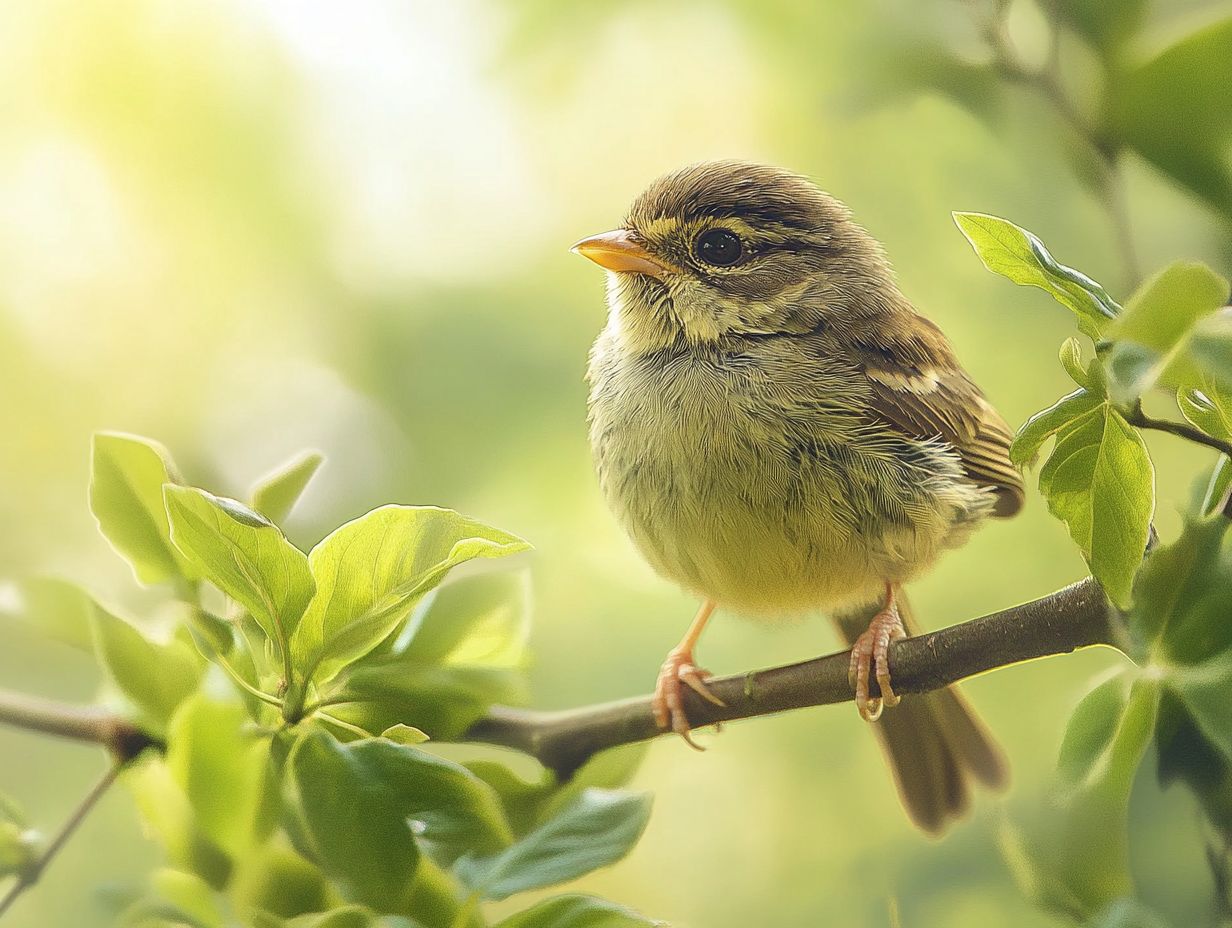
Stress in birds can show up in various physical, behavioral, and emotional signs, such as decreased vocalization, excessive preening, aggression, change in appetite, and feather plucking.
How can I tell if my bird is stressed?
Some other indications that your bird might be stressed include excessive or irregular sleeping, decreased activity, and unusual posturing or body language.
What environmental factors can cause stress in birds?
Changes in routine, lack of mental and physical stimulation, overcrowding, and loud or sudden noises are among the most common environmental factors that can lead to stress in birds.
Can birds experience emotional stress?
Yes, birds are social creatures and can feel emotional stress if they are separated from their owners or other birds, experience the loss of a companion, or have a lack of social interaction.
Are there any health issues that can cause stress in birds?
Yes, underlying health problems such as nutritional deficiencies, infections, and injuries can cause stress in birds. It is important to have your bird regularly checked by a veterinarian to rule out any potential health issues.
How can I help my stressed bird?
The best way to help a stressed bird is to identify and eliminate the source of stress. This can involve providing a comfortable and stimulating environment, ensuring a balanced diet, and spending quality time with your bird to build a strong bond and provide emotional support.
In summary, monitoring your bird s well-being is crucial. Don t ignore these signs; act fast to ensure your bird’s health and happiness!

